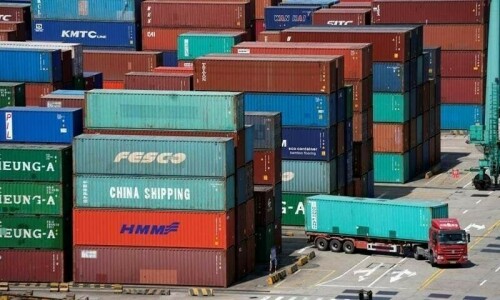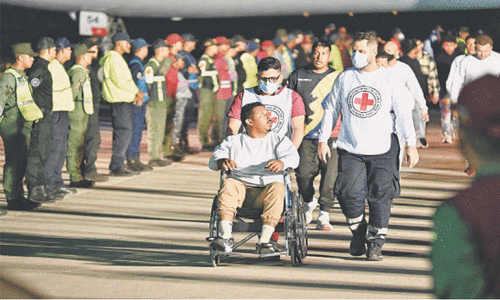ISLAMABAD: In two major developments on Thursday, the National Electric Power Regulatory Authority (Nepra) declined interest payments on the Water and Power Development Authority (Wapda) loans in hydroelectricity tariff while the government reduced return on its Wapda equity to 10 per cent from 17pc at present as part of efforts to reduce capacity payments.
As such, the power regulator reserved over Rs1.65 per unit increase in hydropower tariff sought by Wapda for current fiscal year. “We can’t be your partner in this crime,” said Chairman Nepra Tauseef H. Farooqui while rejecting Wapda’s request for allowing in hydropower tariff Rs11bn interest on the authority’s loans acquired for payment of Net Hydel Profit (NHP) to provinces.
During the course of public hearing presided over by Nepra chairman, Wapda management lowered its demand for tariff increase to 93 paisa per unit instead of its original Rs1.65 per unit increase based on revised estimates.
Mr Farooqui said a decision over the Wapda petition would be made after detailed examination of data and the regulator would try to minimise the tariff increase. However, he made it clear that interest on Wapda loans for payment of profit to provinces would not be allowed in tariff.
He said it was surprising that Wapda was paying NHP to provinces through bank borrowing. “What kind of financial prudence allows payment of profits through borrowing and then its interest is also charged to consumers in addition to NHP to pay off those debts,” he asked.
He went on to add that the regulator would not allow Rs11bn interest on these debts to be charged to consumers.
Wapda should take up the matter with the Finance Division to secure debt servicing cost through budget or any other mechanism “but we can’t be your partner in this crime,” Farooqui said.
A Wapda team told the public hearing that the federal government had decided in 2015 to allow Rs1.10 per unit on account of net hydel profit to Khyber Pakhtunkhwa under a formal agreement between the federal and the provincial government. A similar arrangement was later extended to others. The agreement also entailed 5pc annual increase in NHP rate which could not be actualised.
The team said existing Wapda tariff stood at Rs5.67 per unit. The tariff petition filed in August had sought an increase of Rs1.65 per unit to Rs7.32 per unit. However, under subsequent decisions as part of government effort to scale down capacity charges, increase in tariff should be allowed to the extent of 93 paisa per unit to Rs6.60 per unit. The required increase was necessary on account of NHP and water use charges.
Wapda authorities reported that the authority had hydropower plants with 8,000MW capacity while more plants with an additional 9,000MW were currently under constructions.
Wapda in its tariff petition said it was undertaking different hydropower projects and its revenue requirements were determined at Rs71.349bn in 2017-18 which increased to Rs177.518bn in 2020-21, showing an increase of Rs106.169bn.
Of this, the O&M cost had been estimated to be Rs19.724bn in 2020-21, depreciation cost at Rs7.728bn, sukuk bonds repayment at Rs1.69bn, return on investment on power stations at Rs37.163bn, return on power projects Rs32.085bn and other income of Rs698 million, leaving an overall regulatory revenue gap of Rs68.8bn.
Published in Dawn, November 13th, 2020
















































